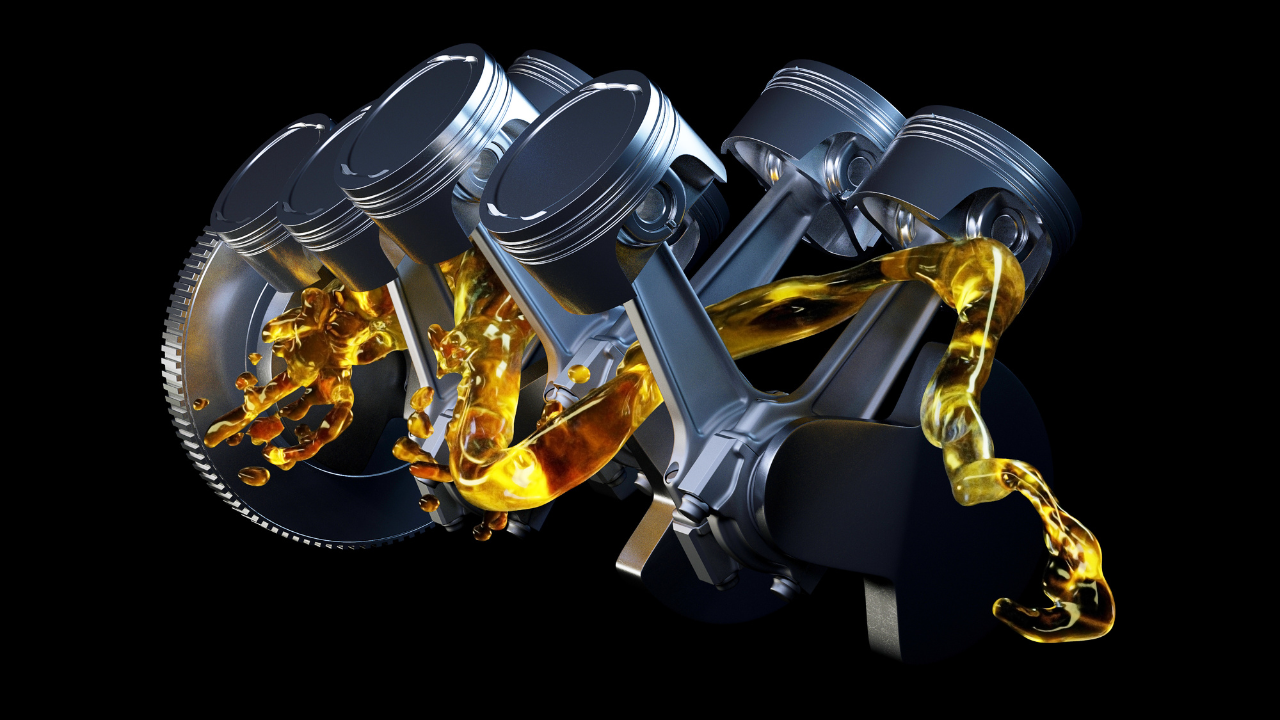In the realm of automotive maintenance, selecting the right engine oil is similar to choosing the lifeblood for your vehicle’s heart. With an abundance of options in the market, it’s easy to feel overwhelmed. However, fear not! WD-40, a trusted name in lubrication solutions, offers a range of synthetic engine oils tailored to suit various driving needs.
In this guide, we explore the complexities of WD-40 lubricants, interpreting which synthetic engine oil is best suited for your vehicle’s specific requirements. From the versatile 5W30 oil to the robust 20W50 engine oil, we leave no stone unturned in exploring the optimal lubrication solution for your cherished ride. Ready to elevate your vehicle’s performance? Choose WD-40 synthetic oils for smooth engine operation and enhanced fuel delivery.
Demystifying Engine Oil: Why It Matters

Imagine your engine as a high-performance machine constantly in motion. Pistons pump, valves open and close, and metal components rub against each other at high speeds. Engine oil acts as the critical layer of protection between these components, preventing excessive wear and tear.
Here’s a breakdown of the key functions of engine oil:
- Lubrication: Oil reduces friction between moving parts, minimizing wear and tear. A high-quality synthetic oil maintains its lubricating properties even at extreme temperatures.
- Temperature Regulation: Engine operation generates immense heat. Engine oil absorbs and carries away this heat, preventing overheating and component damage.
- Cleaning and Deterring Contaminants: Over time, engines accumulate combustion byproducts like sludge and varnish. Engine oil acts as a detergent, suspending these contaminants and preventing them from building up on critical surfaces.
- Sealing and Compression: A thin layer of oil coats pistons and cylinder walls, creating a tight seal for optimal compression and efficient combustion.
Simply put, using the right engine oil extends your engine’s lifespan, improves performance, and enhances fuel efficiency.
The Synthetic Advantage: Unveiling the Superior Choice
Conventional engine oils are derived from crude oil and can break down at high temperatures, losing their viscosity and protective properties. Synthetic oils, on the other hand, are man-made lubricants engineered for superior performance. Here’s what sets them apart:
- Enhanced Thermal Stability: Synthetic oils boast a wider operating temperature range, maintaining their viscosity even at extreme hot and cold conditions. This translates to better lubrication and protection during cold starts and hot summer drives.
- Reduced Friction: Synthetic oils have a more uniform molecular structure, leading to lower friction between engine components, resulting in improved fuel efficiency and horsepower.
- Improved Resistance to Breakdown: Synthetic oils are less susceptible to oxidation and thickening, offering longer oil change intervals compared to conventional oils.
- Enhanced Engine Cleanliness: Synthetic oils have superior cleaning properties, effectively deterring sludge and varnish buildup, keeping your engine cleaner and more efficient over time.
While the initial cost of synthetic oil might be slightly higher, the extended oil change intervals, fuel economy benefits, and superior engine protection make them a worthwhile investment in the long run.
Decoding the Mystery: Understanding Oil Viscosity Grades

The numbers and “w” you see on engine oil bottles, like 5w30 or 10w40, represent the oil’s viscosity, which refers to its resistance to flow. This is a crucial factor when choosing the right oil for your vehicle’s specific needs and climate.
The “w” stands for “winter,” and the number before it indicates the oil’s viscosity at cold temperatures. A lower number (like 5w) signifies better flow at cold starts, allowing oil to reach critical engine components quickly for optimal protection.
The number following the “w” denotes the oil’s viscosity at operating temperature. A higher number (like 30 or 40) indicates a thicker oil, offering better lubrication for high-performance engines or vehicles operating in hot climates.
Here’s a breakdown of some common oil viscosity grades:
- 5w30: This versatile oil is a popular choice for a wide range of vehicles and climates. It offers excellent cold-start performance and adequate protection for moderate to hot weather conditions.
- 10w30: This oil is thicker than 5w30 and is suitable for older vehicles with higher mileage or use in warmer climates.
- 20w50: This is a very thick oil, ideal for high-performance engines or vehicles operating in extremely hot conditions. However, due to its high viscosity, it might not be the best choice for everyday driving or cold climates.
- 5w40: This oil offers a wider viscosity range compared to 5w30, providing good cold-start performance and high-temperature protection. It’s suitable for European and some high-performance vehicles.
Remember, these are just general guidelines. Always consult your vehicle’s owner’s manual for the manufacturer’s recommended oil viscosity grade.
Selecting the Perfect Oil for Your Vehicle: Beyond Viscosity
- API Service Rating: The American Petroleum Institute (API) service rating system categorizes engine oils based on their performance characteristics. Common API ratings include SN, SM, and SL, with SN being the latest and most stringent standard. Consult your owner’s manual for the recommended API rating for your vehicle.
- Synthetic vs. Synthetic Blend: Fully synthetic oils offer the best performance and protection, while synthetic blends combine synthetic and conventional oils for a balance between performance and cost.
- Driving Conditions: Consider your typical driving habits. If you frequently experience stop-and-go traffic or short trips, a lower viscosity oil like 5w30 might be ideal. For long highway drives or vehicles used for towing, a higher viscosity oil like 5w40 might be more suitable.
- Climate: If you live in a region with extreme cold winters, a lower viscosity oil (like 5w20 or 0w20) ensures better cold-start protection. Conversely, hotter climates might benefit from a thicker oil (like 10w30 or 5w40) for optimal high-temperature lubrication.
- Manufacturer Recommendations: Always prioritize the manufacturer’s recommendations in your vehicle’s owner’s manual. While some manufacturers might offer a wider range of compatible oils, they have rigorously tested specific oils for optimal performance and protection of your engine.
Finding the Right Oil for Your Specific Needs: Examples and Considerations

Let’s delve deeper into some specific scenarios to illustrate choosing the right synthetic oil:
- Newer Vehicles: Modern engines with tighter tolerances often require lower viscosity oils (like 5w30) for optimal fuel efficiency and performance. Fully synthetic oils are recommended for these vehicles as they offer superior protection and extended oil change intervals.
- Older Vehicles with Higher Mileage: For older vehicles with higher mileage, a slightly thicker oil (like 10w30) might be recommended to compensate for potential wear and tear in the engine. Synthetic blends might be a good choice for these vehicles, offering a balance between performance and cost.
- European Vehicles: Many European car manufacturers recommend specific oil specifications for their vehicles. These specifications might differ from the typical API service ratings. Always refer to your owner’s manual for the exact oil specification required for your European car.
- High-Performance Vehicles: Performance engines generate immense heat and require a high-performance oil to ensure optimal lubrication and protection. Fully synthetic oils with a wider viscosity range (like 5w40) are often recommended for these vehicles.
The Case for Gulf 20w40 Engine Oil (and When It Might Be Right for You)
While this guide primarily focuses on the advantages of synthetic oils, there are situations where conventional oils like Gulf 20w40 might be suitable. Here’s a closer look:
- Cost-Effectiveness: Conventional oils are generally less expensive than synthetic oils. If you have an older, high-mileage vehicle with a less demanding engine, Gulf 20w40 might be a cost-effective option, provided it meets the manufacturer’s recommendations.
- Hot Climates: In extremely hot regions, Gulf 20w40’s higher viscosity might offer adequate lubrication for older engines, particularly if used for short trips.
However, it’s crucial to consider the drawbacks:
- Reduced Fuel Efficiency: Conventional oils like Gulf 20w40 have higher friction compared to synthetics, leading to slightly lower fuel economy.
- Compromised Cold-Start Performance: The thicker viscosity of Gulf 20w40 might make cold starts more difficult, especially in colder climates. This could lead to increased wear and tear on the engine during startup.
- Shorter Oil Change Intervals: Conventional oils break down faster than synthetics, necessitating more frequent oil changes.
Therefore, choosing Gulf 20w40 should be a calculated decision based on your vehicle’s specific needs, your driving habits, and climate.
10w-30 Engine Oil for Bikes: A Specific Consideration
- Shear Stability: Motorcycle engines experience high shearing forces due to wet clutches. 10w-30 engine oils are formulated with specific additives to resist this shearing, maintaining their viscosity and lubricating properties throughout the oil change interval.
- Improved Wet Clutch Performance: Motorcycle engine oil acts as a lubricant for both the engine and the wet clutch. 10w-30 oil provides adequate lubrication for both, preventing clutch slippage and ensuring smooth gear changes.
- Fuel Efficiency: Motorcycles often prioritize fuel efficiency. 10w-30 oil offers a balance between lubrication and viscosity, promoting efficient engine operation and maximizing fuel economy.
However, similar to choosing oil for cars, several factors influence oil selection for motorcycles, including:
- Engine Type: High-performance motorcycles might require fully synthetic oils with wider viscosity ranges for optimal protection. Always refer to your motorcycle’s owner’s manual for specific recommendations.
- Climate: In colder climates, a lower viscosity oil like 5w30 might be necessary for easier cold starts. Conversely, hotter climates might benefit from a slightly thicker oil like 10w40 for improved high-temperature lubrication.
- Riding Style: For aggressive riding styles or frequent stop-and-go traffic, a fully synthetic oil with superior heat dissipation properties might be ideal.
Remember, consulting your motorcycle’s owner’s manual and a qualified mechanic is crucial for selecting the right 10w-30 oil for your specific bike and riding needs.
Final Words for WD-40 lubricants
Engine oil plays a critical role in your vehicle’s health and performance. By understanding the differences between conventional and synthetic oils, deciphering viscosity ratings, and considering additional factors like API ratings and driving conditions, you can make an informed decision about the best oil for your car or motorcycle. Always prioritize the manufacturer’s recommendations and consult a qualified mechanic when in doubt. Don’t settle for anything less than optimal performance – explore WD-40’s synthetic lubricants to fine-tune your engine and fuel delivery system.
Remember, a happy engine translates to a smooth ride, improved fuel efficiency, and extended vehicle life. Invest in the right oil, and your vehicle will reward you for miles to come!

